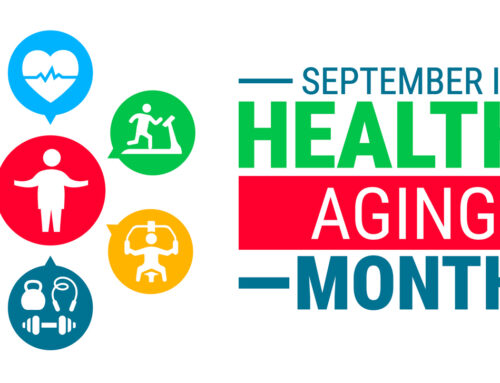How to give your body what it needs as you get older
There’s a saying that “some people eat to live, others live to eat.” As we grow older, the more balance we’re able to find between the pleasure of eating and the need to nourish our bodies, the more living we’ll get out of life, in terms of both in years and quality.
Unfortunately, effective nutrition often falls victim to overpowering wants. Proclivities and habits we develop throughout our lifetime can be difficult to redirect. Fortunately, once you know what to look for and how to eat, wants and needs can fall harmoniously into alignment.
8 nutritional tips to keep your body as youthful as your spirit
When our bodies mature, we become more susceptible to conditions that atrophy our quality of life –loss of bone density, high blood pressure, and a slower metabolism, to name a few. Just as cars with high mileage require special treatment, so do our bodies.
Here’s how to optimize your diet for living life to the fullest, well into the later years of life:
1. Stay hydrated. Dehydration is common among geriatric individuals due to a decrease in thirst sensation, so it’s important to remember to take in liquids. However, be mindful of what you drink. Avoid beverages high in sugar such as soda and juice – tea and coffee can be palate-pleasing alternatives to water that provide benefits beyond hydration.
2. Vary your diet. Humans were nomadic hunter gatherers for many thousands of years before settling into agriculturally-centered villages. That means our bodies are better suited for obtaining nutrients from a variety of foods. A range of foods provides different nutrients, and adhering to a uniform diet can leave your body overloaded on, for example, carbohydrates, while making it depleted in protein.
3. Know your menu. The National Council on Aging recommends a diet consisting of:
Whole grains: brown rice, whole wheat pasta, whole-grain barley, whole oats
Lean protein: seafood, lean meats, eggs, beans
Orange, red, green, and purple fruits and vegetables
Low-fat dairy or dairy alternatives
Foods high in vitamin D and fiber
4. Cut down the salt. Sodium causes the retention of water, which in turn increases blood pressure and can lead to inflammation. Try gradually replacing salt with herbs and spices, such as rosemary, cayenne pepper, and basil – before you know it, salty foods will simply seem “too salty” for your taste!
5. Control your sweet tooth. Possibly the most exploited of our dietary instincts is our taste for sugar. Sugar metabolizes into stored energy, aka, fat. Our ancestors faced the constant threat of famine, inclining them to eat as many sugary, high-carbohydrate foods as they could in one sitting to survive hard times. In modern Western Culture, famine is no longer a threat; however, our evolutionary taste for sugar has persisted. Today’s high sugar diets are associated with obesity, diabetes, high cholesterol, fatty organs, and tooth decay. While artificial sweeteners can help wean your taste for sugar, a litany of other concerns are associated with their ingestion. If you’re having trouble satisfying your sweet tooth, try high-fiber fruits such as apples and pears to calm your cravings.
6. Shop smart. If you don’t know what’s in it, you probably shouldn’t eat it. As our understanding of nutrition has evolved throughout the years, food manufacturers have struggled to come up with new ways of keeping their products both tasty and healthy. Unfortunately, foods labeled as “healthy” aren’t always so great for you. In general, whole foods are the best for our bodies, so, try to stick to foods typically shelved on perimeter of the grocery store, and always scan the nutrition labels for hidden sugars, nitrates, dyes, hydrogenated oils, etc.
7. Stop overeating. Those same instincts to consume sugar also drive us to overeat, and the pleasure of eating often supersedes our nutritional needs. The American Heart Association suggests maintaining specific serving sizes. In addition, chewing your food thoroughly, eating slowly, socializing over a meal, and even using smaller plates can help minimize the urge to eat beyond what’s good for us.
8. Talk to your doctor about supplements. Sometimes we’re not able to get all that we need through our diets. However, not all supplements are effective and some can even be dangerous. Always consult with a physician before embarking on a supplement plan.
It never hurts to have some guidance
Adjusting our diets isn’t necessarily as simple as being more mindful of what we eat, and sometimes it can feel like having all the ingredients without a recipe. That’s why FirstLantic offers meal preparation services optimized for seniors. Our expert nutritionists help clients adapt their diets to the changing needs of their bodies.
If you are looking for home health care services in South Florida, whether hourly, daily, or overnight, give us a call anytime at 877-618-3624 or fill out our online contact form. Our home health aides have been providing the highest level of service and attention to clients in Broward, Palm Beach, St. Lucie, Indian River, and Martin Counties since 2000.
 AVAILABLE 24 HOURS A DAY/7 DAYS A WEEK
AVAILABLE 24 HOURS A DAY/7 DAYS A WEEK Careers
Careers






